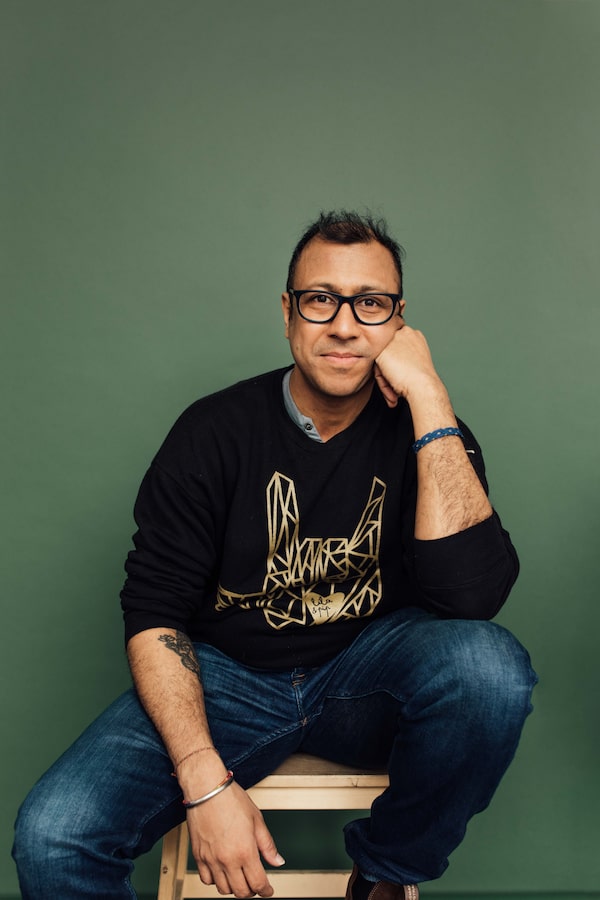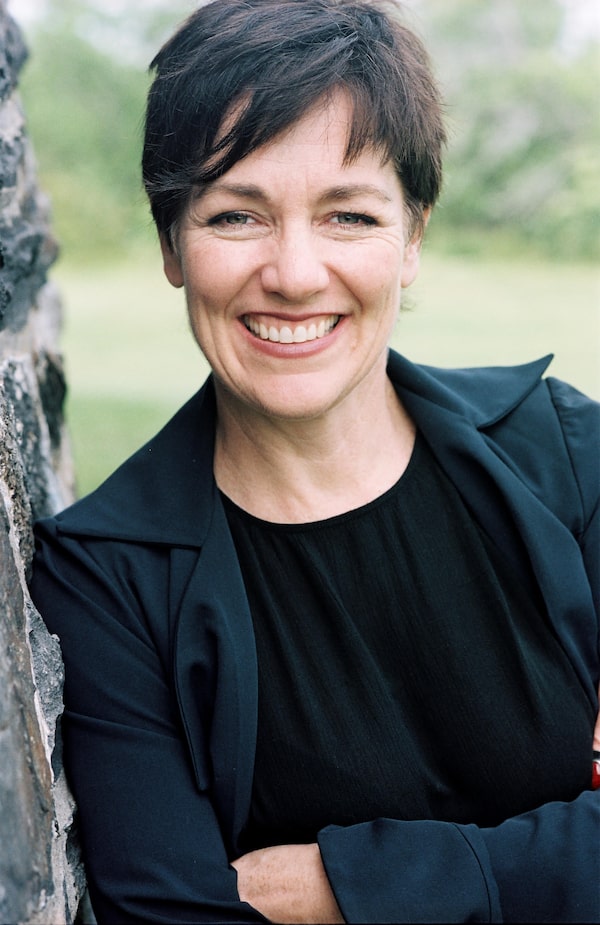La fureur de ce que je pense is Marie Brassard’s 2013 performance built around a collage of texts by the late Quebec novelist Nelly Arcan and performed by six actresses and a dancer.Michael Slobodian/Handout
The Siminovitch Prize in Theatre released a shortlist of four directors nominated for the 2022 edition of the $100,000 award on Thursday.
The jury, led by playwright and director Guillermo Verdecchia, has a hard task ahead to determine which of these professional mid-career theatre creators is most deserving of what is the richest prize in Canadian theatre and one that recognizes innovation and influence.
Marie Brassard, a major figure in Quebec theatre and dance, has been working in her field the longest of the nominees. After spending 15 years as a crucial collaborator of director Robert Lepage, she launched her own company, Infrarouge, in 2001 with which she has toured a series of shows internationally, many of them high-tech solos performed in English and French à la Lepage.
La fureur de ce que je pense, Brassard’s 2013 performance built around a collage of texts by the late Quebec novelist Nelly Arcan and performed by six actresses and a dancer, has been one of her biggest successes to date – and resumes touring this fall. The project spawned a Japanese version, also directed by Brassard, that launched in Tokyo before heading on a four-city tour of that country.

Ravi Jain is co-artistic director of Toronto-based Why Not Theatre.Handout
Ravi Jain, co-artistic director of Toronto-based Why Not Theatre, is short-listed for the prize for the third time and no doubt is hoping it will prove the proverbial charm.
Despite a pandemic pause in most performing arts activity, Jain’s reputation has only grown since the last time he was last up for the Siminovitch in 2019. He directed R+J, an innovative Shakespeare production for blind, low-vision and sighted audiences, in a tent at the Stratford Festival in 2021, while his acclaimed 2017 production of Prince Hamlet, aimed at deaf and hearing audiences alike, has now embarked off on an American tour. His long-awaited large-scale Mahabharata (created with Miriam Fernandes) is set to debut at the Shaw Festival this season before an international tour.
Ann-Marie Kerr, the third nominee, is a Halifax-based director who has worked with a variety of well-known artists on edgy or innovative touring solo shows such as Adam Lazarus’s controversial Daughter and Hannah Moscovitch’s The Secret Life of a Mother.

Ann-Marie Kerr is a Halifax-based director who has worked with a variety of well-known artists on edgy or innovative touring solo shows.Handout
Her projects with the 2b theatre company and collaborator/spouse Anthony Black include Invisible Atom and One Discordant Violin, which just completed a run in French in Montreal at La Licorne, while her digital theatre/virtual reality piece Frequencies created with the company Heist was just named best independent production at Nova Scotia’s Robert Merritt Awards, beating out a variety of live, in-person shows.
Sherry J. Yoon, the final nominee, is the artistic director of Vancouver’s boundary-pushing Boca del Lupo company, which she co-founded in 1996 and with which she has since co-created more than 45 productions.
Yoon’s work has always been experimental in form – which led to her being a natural leader when the pandemic hit. Among her accomplishments while “working from home,” she curated the digital/live hybrid series Grand Acts of Theatre (with Jillian Keiley) for the National Arts Centre; came up the popular Plays2Perform@Home box sets, scripts to be performed by household bubbles; and devised Red Phone, an interactive theatre installation in a phone booth that continues to tour.

Sherry J. Yoon is the artistic director of Vancouver’s boundary-pushing Boca del Lupo company.Handout
The Siminovitch Prize in Theatre has been given out to either a director, a playwright or a designer on a three-year cycle since 2001. Each laureate selects one or more protégés to share $25,000 of the prize money with. This year’s winner will be announced on Dec. 1.
 J. Kelly Nestruck
J. Kelly Nestruck